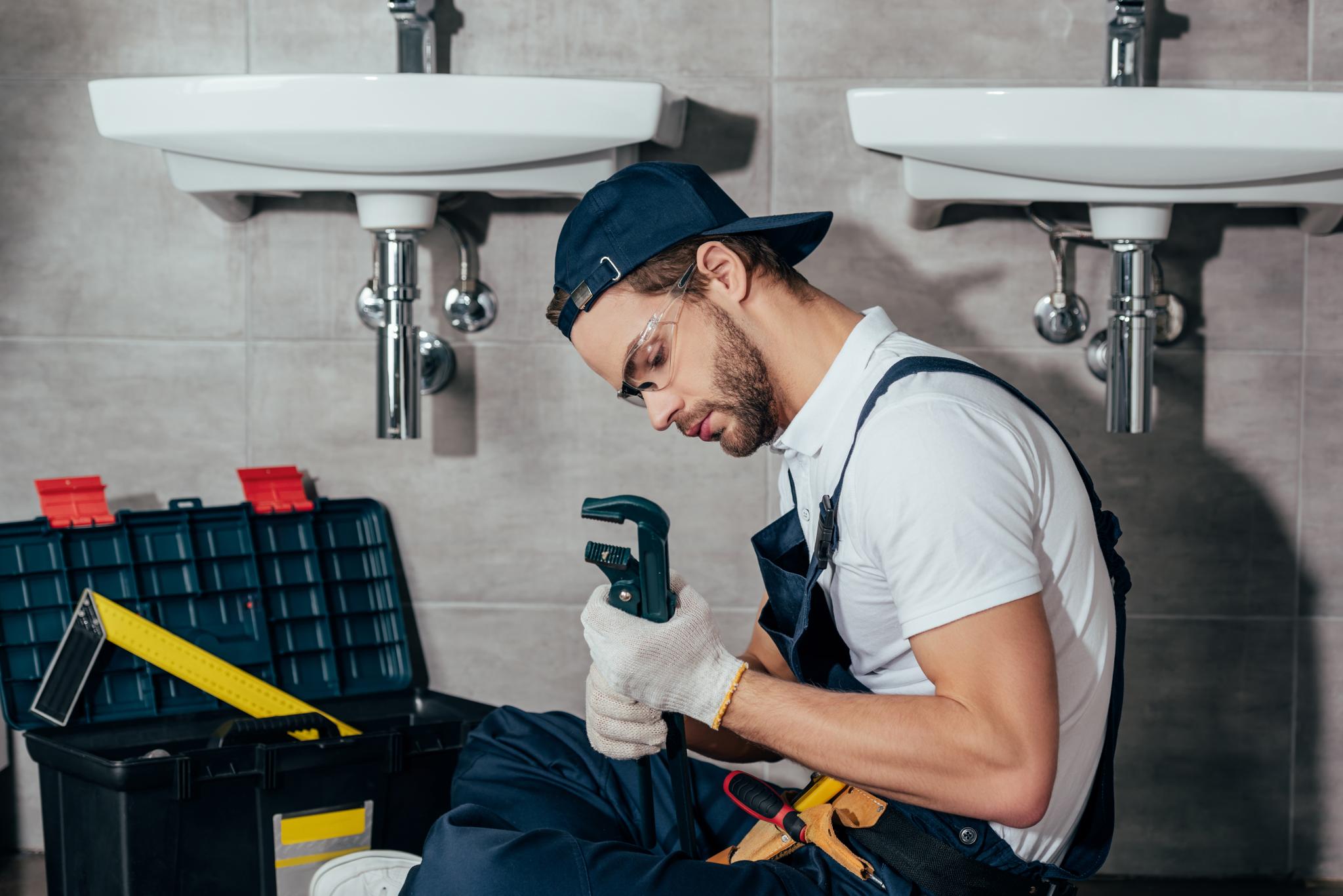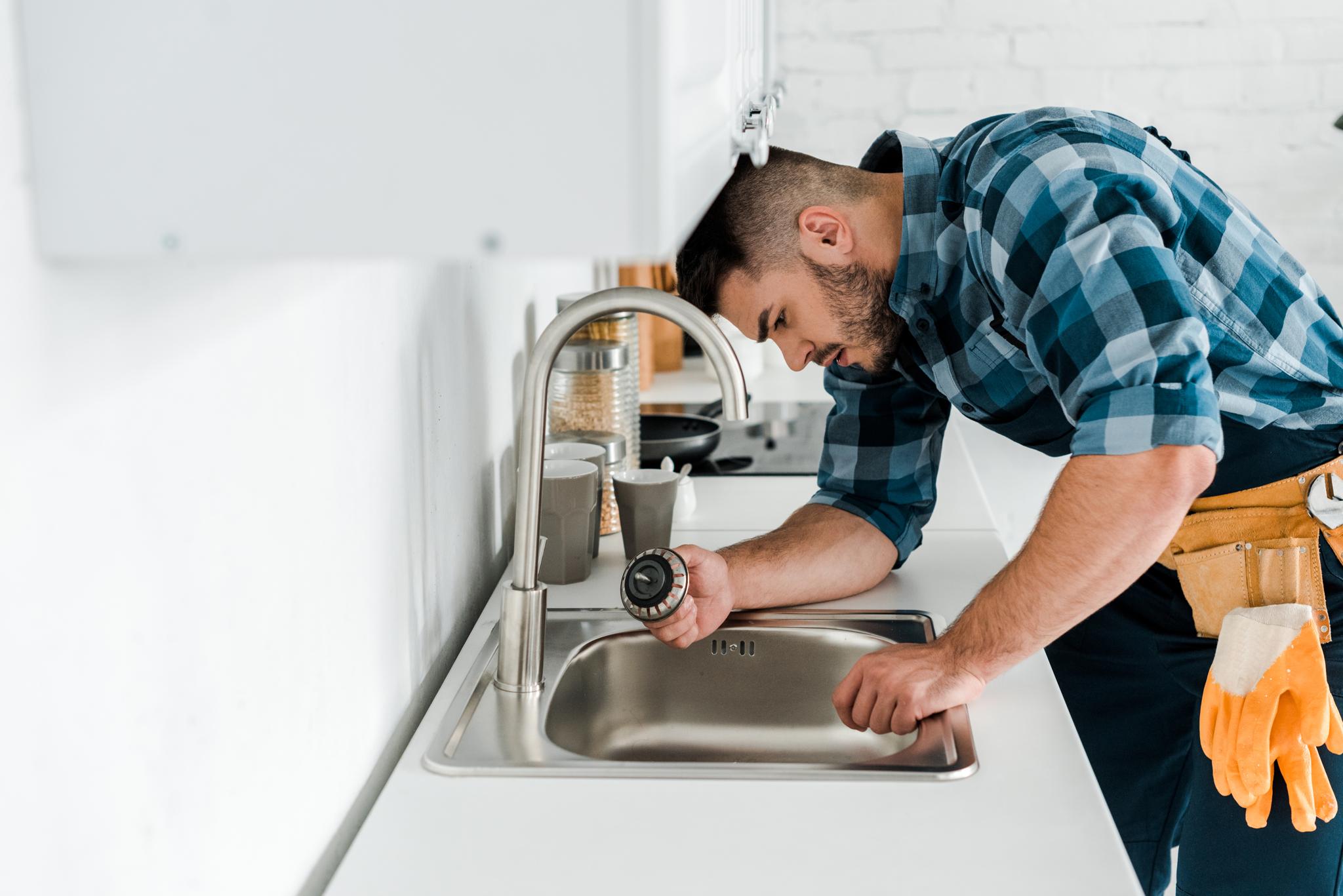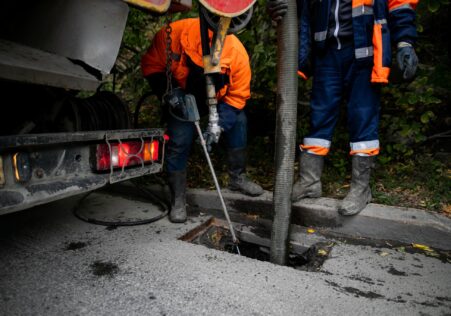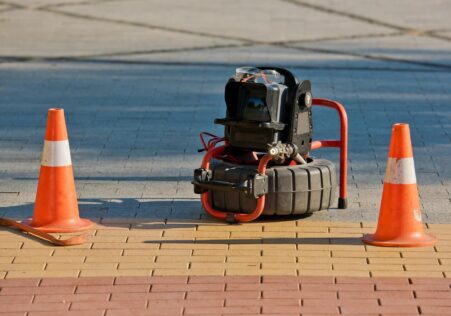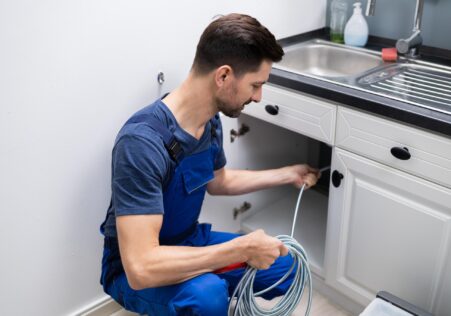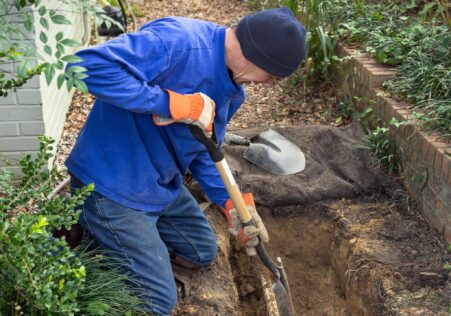How to Keep Your Drains Clean and Prevent Future Blockages
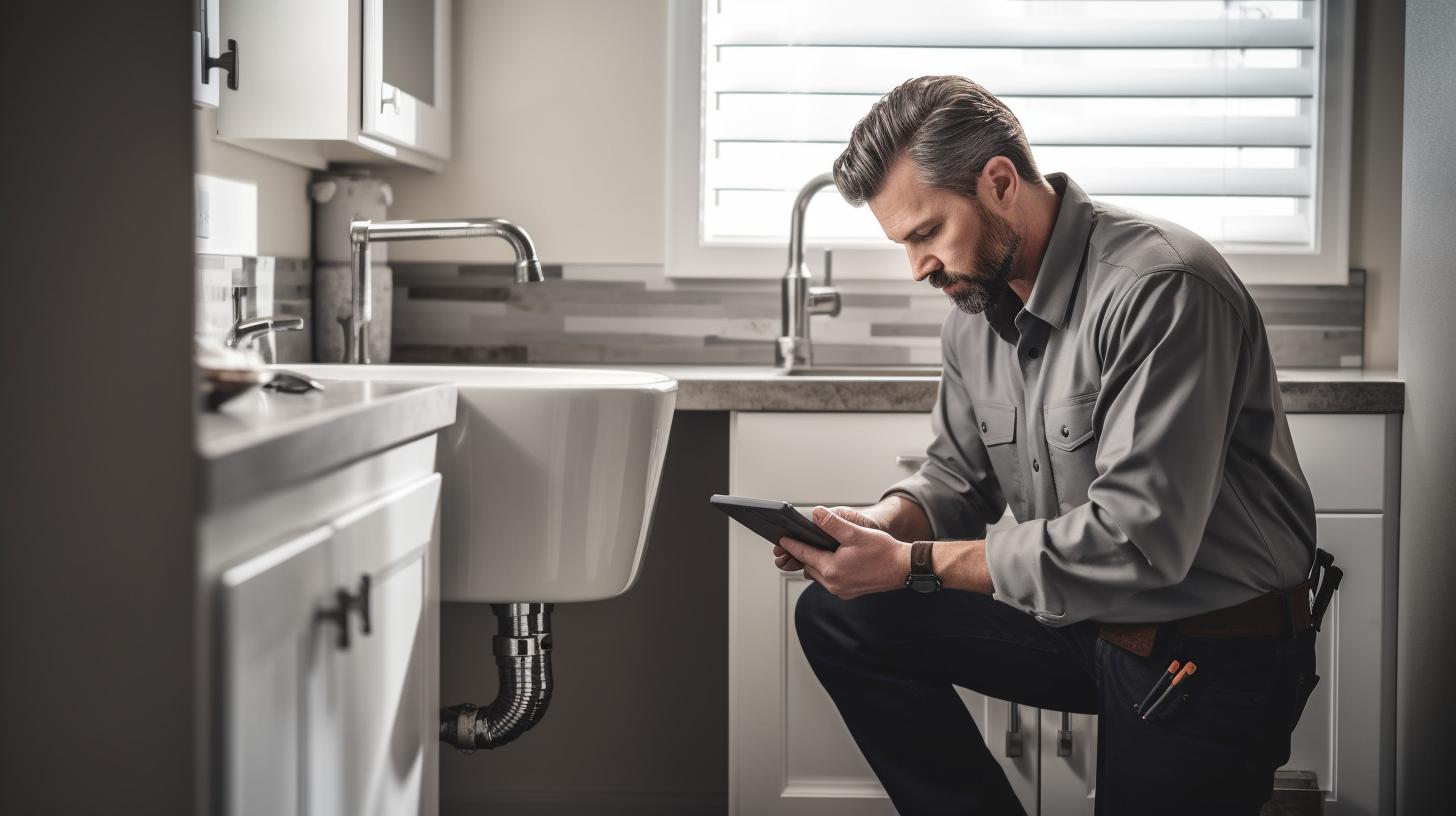
Are you fed up of dealing with clogged drains in your home or office? Do you want to learn how to prevent blockages from occurring and maintain the cleanliness of your drains? Here, we’ll give you some suggestions and tricks to ensure good drainage. We will also explain why it’s crucial to hire professionals such as Perth Blocked Drains Plumber for the job.
Key Takeaways
- The most common causes of blockages to drains are soap and hair buildup, food waste sticking to grease buildup, toiletries being flushed into the toilet, such as baby wipes or feminine hygiene products dental floss or cotton swabs and tree roots extending in pipes outside the house.
- Utilize a strainer or hair catcher on the drain’s opening to stop hair or food waste from leaking down the drain.
- Make sure to properly dispose kitchen garbage by dumping food scraps into a compost bin or trash bag, instead of flushing them in the drain.
- Conduct regular maintenance cleaning by pouring boiling hot water slowly down your shower, sink or tub drain openings once every week until they’re free of debris.
- Mix equal amounts of baking soda and vinegar. Then add it to the drain opening for an easy method to remove the grease blockages that build up on sewer pipe walls that create blockages. Take 30 minutes to wait, then pour hot water down the drain.
- Contact Perth Blocked Drains Plumber for help with regular maintenance of septic tanks, sewer systems or pipes that are outside of the house to ensure they’re working properly and efficiently.
- Don’t use chemical drain cleaners because they can harm the pipes over time and affect the environment.
- Avoid flushing non-decomposable items like cotton swabs, cotton towels, dental floss or feminine hygiene products into your toilet because this could cause expensive repairs to the sewers or in septic tanks.
- Be alert to smells that are unusual emanating from drains. Also, watch for unsteady drainage, gurgling sounds or any other unusual behavior that might indicate a clogged drain that needs immediate attention.
Common Causes of Drain Blockages
Before we go into the"dos and don’ts," it’s important to know the reasons behind drain blockages to begin with. Below are some common reasons:
- Scum and hair build-up in the bathroom drains
- Food waste clings on grease buildup in kitchen drains
- Toiletries that get flushed down the sink like baby wipes, feminine hygiene products, dental floss or cotton swabs
- Tree roots becoming pipes in the exterior of the house
These causes can result in serious damage in the long run if not taken care of. Fortunately, there are ways to deal with each and ensure your drains run without a hitch.
Dos
1. Make use of a strainer or hair catcher
A hair catcher or strainer can be placed over the drain’s opening. It prevents food waste or hair from leaking down the drain. Be sure to wash the drains regularly.
2. Be sure to properly dispose kitchen garbage
Food scraps can be tossed into your compost bin or trash bag, rather than flushing them down the drain. Rinse dishes using hot water when washing up.
3. Make sure you are performing periodic Maintenance cleaning
Once a week pour boiling water slowly into your bathtub, shower or drain openings for tubs that are fairly clear. This will stop material accumulation from clogging the drain altogether.
4. Use baking soda and vinegar
Mix equal parts vinegar and baking soda (usually half a cup each) then slowly pour it into the drain opening to create an effective method of removing the grease deposits that form on sewer pipe walls that cause blockages. For 30 minutes, wait and pour hot water down the drain.
5. Get a professional to help you.
Engage a professional plumber like Perth Blocked Drains Plumber to perform regular maintenance of septic tanks sewer pipes or other pipes outside the home to ensure they’re working correctly and efficiently.
Don’ts
1. Don’t use chemical drain cleaners
Chemical drain cleaners may cause damage to your pipes over time, and can even harm the environment. They could also be harmful when combined with other products for cleaning.
2. Do not flush items that aren’t decomposable into the toilet.
Do not flush non-decomposable materials in your toilet, such as paper towels, cotton swabs and dental floss as well as feminine hygiene products because they won’t be able to break down in the natural way and instead result in costly repairs to sewers or septic tanks.
3. Do not ignore warnings
If you notice abnormal scents coming from drains the sound of gurgling, slow drainage or other unusual activity this could be a sign of an unclean drain that needs immediate attention.
| Do’s | Don’ts |
|---|---|
| Use a strainer or hair catcher | Use chemical drain cleaners |
| Properly dispose of kitchen waste | Flush non-decomposable items down the toilet |
| Perform regular maintenance cleaning | Ignore warning signs |
| Use baking soda and vinegar | |
| Call a professional like Perth Blocked Drains Plumber for help |
Common Questions and Answers
What is the best frequency to wash my drains?
It is recommended to take care to clean your drains every six months to a year. If you notice slow drains or a foul odor emanating from your pipes, it’s best to act as quickly as you can.
How can I make DIY methods to clean my drains?
There are a variety of home remedies you can try such as pouring boiling water down your drain, with vinegar and baking soda or using a plunger. But be aware of what materials and substances you use to drain your water and avoid any that may cause harm or damage to the plumbing system.
Can I prevent future blockages in my drainage?
Yes, regular checking of your water system could aid in preventing future blockages. Beware of flushing foreign objects into the toilet, regularly wash hair from shower drains and install the sink strainer to collect food scraps before they go to the sewer.
When should I contact to speak with a plumber who is professional?
If you’ve tried DIY techniques but are still experiencing slow-moving drains or clogs, it’s recommended to call an experienced plumber for an additional assessment because there could be some underlying issues that require to be addressed.
My drains continue to get clogged, could this be a sign of a larger problem?
Repeatedly clogged drains may indicate larger issues like tree roots infiltrating pipes or collapsed pipes inside the plumbing system. In these cases it’s recommended to consult an experienced plumber like Perth Blocked Drains Plumber who can assess the problem and suggest the best solution.
In the end, maintaining healthy drains is a must for any home or office. Use these guidelines today to avoid blockages in the future and ensure that your drains are flowing freely. Keep in mind that professional help is only a phone call away. For more information about our plumbing services including unblocking drainage pipes CCTV drain inspection pipe relining, and general plumbing maintenance contact Perth Blocked Drains Plumber at # ###-###-#### or visit our website for more details. [(click here)] (https: //www. example.com/)
Additional Information
- Blocked Drain Emergency? Here’s What You Need to Know About DIY vs. Professionals
- Tips and Tricks for Unclogging a Blocked Pipe with Effortlessly
- How CCTV Drain Inspection Saves You Time and Money in the Long Run
- The Benefits of CCTV Drain Inspection: Beyond Unclogging Pipes
- Reasonably Priced Pipe Relining: The Perfect Answer for Your Sewer Troubles
- CCTV Drain Inspection: An Effective Way to Prevent Future Plumbing Issues
- Investigating the Primary Causes of Drain Blockages
- Say Goodbye to Messy Plumbing Repairs with Trenchless Pipe Relining
- Avoiding Clogged Drains: Tips for Homeowners
- DIY Plumber - An Easy Guide to Unclog Your Shower Drain


